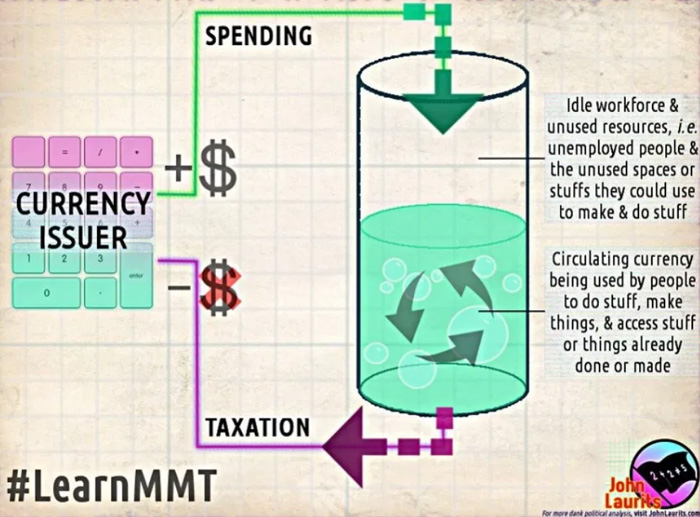Rethinking Lifestyle
Deficit Spending and Austerity

Many readers of this blog will remember 1994-1996 when Paul Martin, as minister of finance inherited a significant deficit. He made it his priority to eliminate this deficit. To do that he had two options: increase taxes or austerity, (cut program spending). He chose austerity. He made huge budget cuts and economic growth decreased by 3.5%. Many of us remember the effect this had on our health care programs. By choosing austerity over increased taxes, the inevitable result was a budget balanced on the backs of the low-income sector rather than on the high-income sector. Despite that, Canadians rewarded him by making him prime minister.
Today many people fear that as our government continues to hand out huge amounts of money to ease the effects of the pandemic-induced lockdowns this will inevitably lead to similar austerity measures down the road, with the added concern that because of the size of deficit being generated, the price, the austerity could even more severe.
But Modern Monetary Theory says that austerity does not need to follow deficit spending. Modern Monetary Theory says that a government able to print its own currency, should under such circumstances. Why not? Well there is a the “why not” and that is inflation. So yes, inflation can become a problem when there is too much money in the economy. But if this is well managed, the problem can be avoided.
Conventionally, the bank of Canada has been tasked with dealing with inflation, and its response to inflation (or the threat of inflation) has been to raise interest rates. This has been effective, but is manipulating the interest rate the only tool available?
Modern Monetary Theory says no. Modern Monetary Theory says inflation is the indicator that there is too much money in circulation, yes, but the response is not necessarily increased interest rates. The response can also be to take money out of circulation – either by taxation or austerity. And this is where the restart we talked about last week becomes relevant. If/when it appears that we are moving towards inflation, what does government need to do.
The question then becomes: “How does a responsible society, A sociaty wishing to live sustainably, deal with consumption?” This is the challenge and needs to be dealt with creatively. On the one hand consumption is good because it stimulates the economy. But consumption is also bad because it impoverishes the planet in so many ways. It contributes to climate change. It follows that government must take the lead in the encouraging good consumption and discouraging bad consumption. Through taxation and stimulation, it can have an incredibly significant effect. We need policies that discourage the consumption of non-renewables – yes, a tax on carbon, but that’s just the beginning. Also, a tax on iron, nickel, copper, phosphate, Colton – and the list of non-renewables goes on. What we do not need is a tax on labour – a payroll tax. Entrepreneurs need policies that encourage hiring of labour that will result in goods and services that do not deplete the planet of resources.
The COVID-19 lockdowns have shown us that we can live remarkably well consuming less oil, but it has also shown us that we want and need our small businesses and health care workers. I think we all have learned more than we care to admit. We just wish it would be others who need to adjust their lifestyle, not we ourselves. But we also know that is not realistic. As we move forward, we need to encourage government policy that is good for all of us, not just our personal selves.




